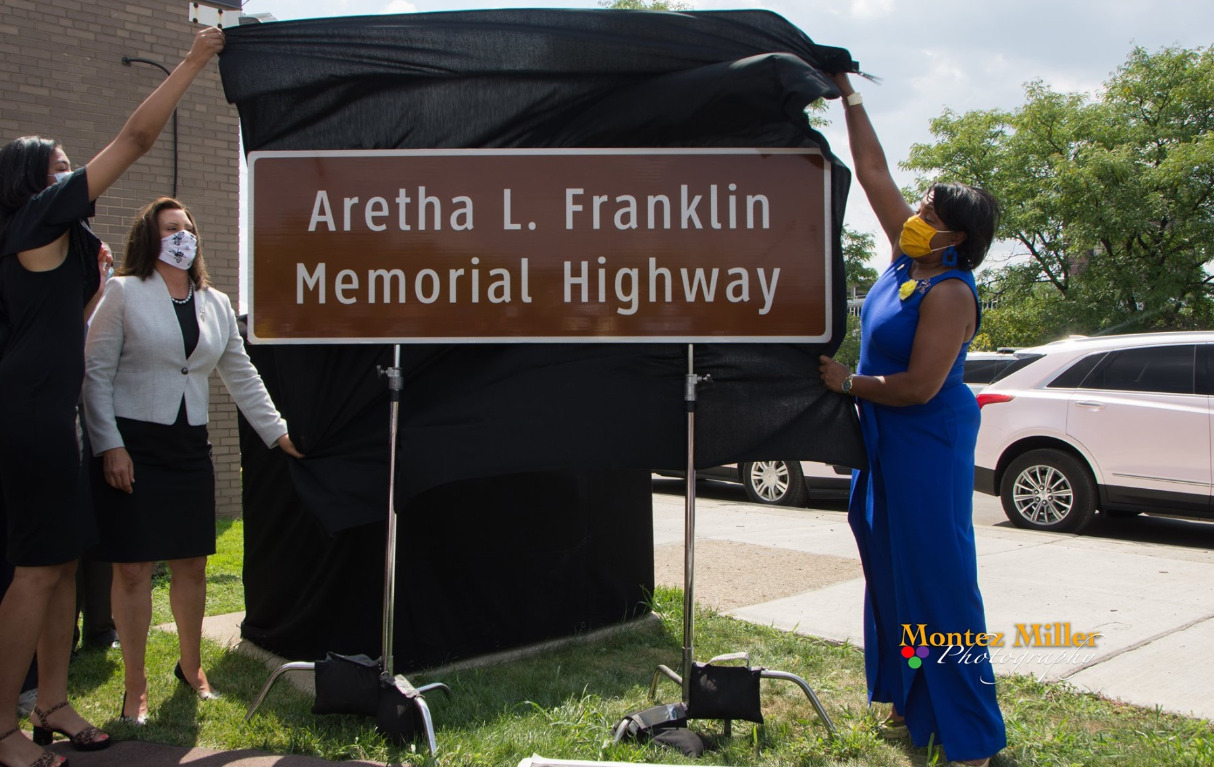Sirius XM has added four channels to their service and now I will never leave the car!
The new channels are dedicated to Aretha Franklin, Jimi Hendrix, Miles Davis, and Motown.
The Motown channel is a take over– I hope temporarily– of my favorite channel, Soul Town, 49.
Aretha’s channel is on Sirius app right now, and will move to the radio with its own channel soon, I’m told.
Jimi Hendrix and Miles Davis can certainly support their own channels. Check the Sirius website for more information. There’s also a free preview.
I’m already addicted to Sirius, and now that’s it. In addition to these channels, I always recommend Little Steven’s Underground Radio, the Beatles channel, 1st Wave, Siriusly Sinatra, and the talk entertainment channels up around 104 or so run by Roger Coletti.
But right now I have to run. “Rock Steady” is playing!
Here’s an Aretha flashback to June 28, 2004:
Friday night in Manhattan, at the smallest venue she’s played in probably 30 or more years, Aretha Franklin made history.
Like James Brown at the Apollo and Sam Cooke at the Copa, Miss Franklin, Queen of Soul, perhaps the greatest performer who can mix R&B, soul, blues and opera, took over B.B. King‘s in Times Square, sold the place out to the rafters and delivered a spine-tingling 95 minutes that no one in the place will ever forget for the rest of their lives.
It was the kind of show in which a waiter trying quietly to take drink orders in the front rows actually stopped his work for a moment and started clapping wildly. Aretha, only a few feet away, had overpowered him.
It was a hot night in B.B. King’s, too, because Franklin insisted on keeping the air conditioning off in order to protect her golden throat. The crowd, which came in en masse around 7:30, had already started fanning themselves during an unexpectedly fine set by Franklin’s son, Teddy Richards, who bravely accompanied himself on electric guitar through several otherwise unornamented numbers. With a voice that falls between Terence Trent D’Arby and Lenny Kravitz, and catchy songs full of potential for bigger orchestration, it was kind of a shock that he didn’t already have his own big career.
But then it was time for Aretha. The ticket prices ran from $150 for standing to $450 for the best seats in the house, with no “comps.” This meant also no celebrities (they don’t like to pay), but Franklin did introduce old comrades like Atlantic Records co-founder Ahmet Ertegun and famed music publisher Allen Klein, who controls the rights to the early Rolling Stones hits and the songs of Sam Cooke.
This may be the only report you read of this show, since there was no press to speak of and only two photographers, one from Corbis and the other hired by Aretha’s publicist. This stealth show had been rescheduled from April, with some thinking it might never happen.
It did, though, as Franklin, dressed in a bejeweled, flowing lemon yellow-colored caftan and sporting a hair cut with bangs and a flip, came to occupy the stage. She placed a rather large beige Louis Vuitton pocketbook under the baby grand piano, picked up the mike and warmed up her voice with a pair of standards including “I Want to Be Happy” and “Skylark,” the latter featuring a protracted scat call just to show she wasn’t fooling around. She dedicated the song to Bob Mersey, her first producer at Columbia Records in her pre-Atlantic days.
And then the gloves, as they say, were off. She slammed through the rarely heard “Jump to It,” her 1980 comeback single for Clive Davis; a moving rendition of “Have You Ever Been in Love”; and a breezy version of her signature, “Respect,” getting the big hit out of the way for more important things. At this point she was drenched in sweat.

